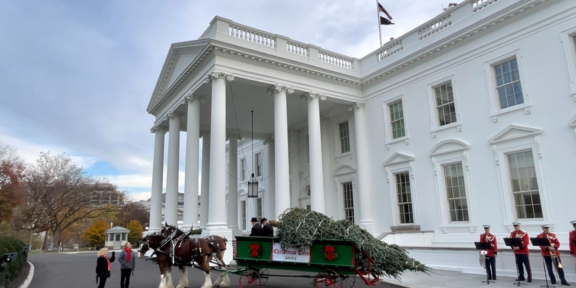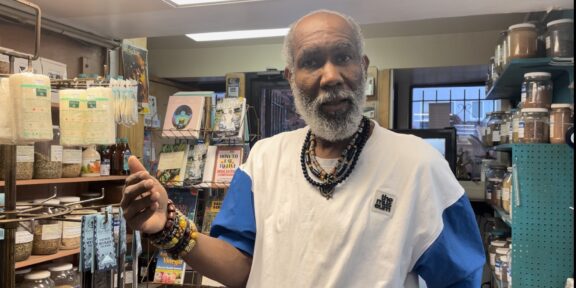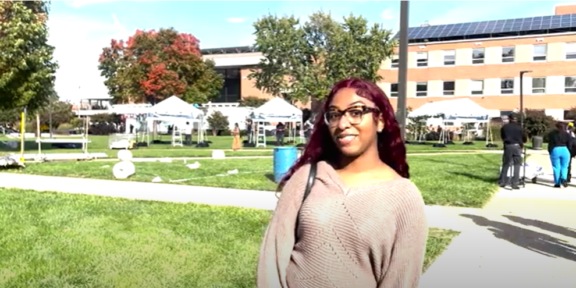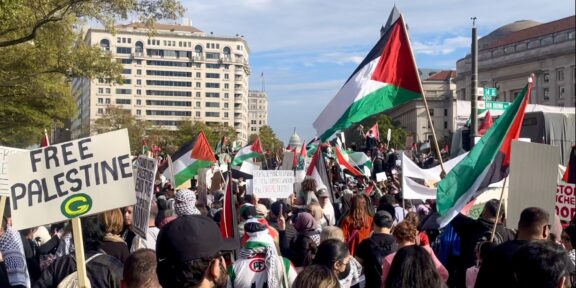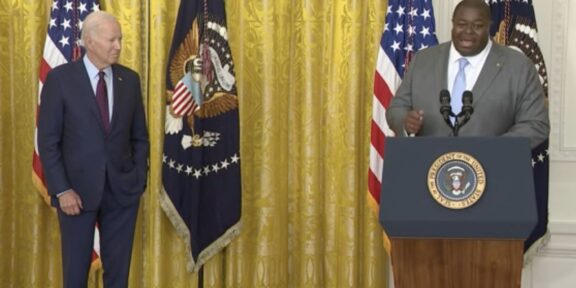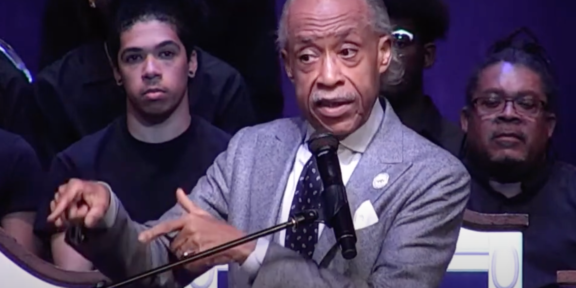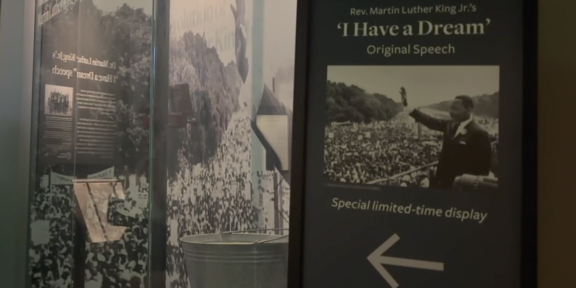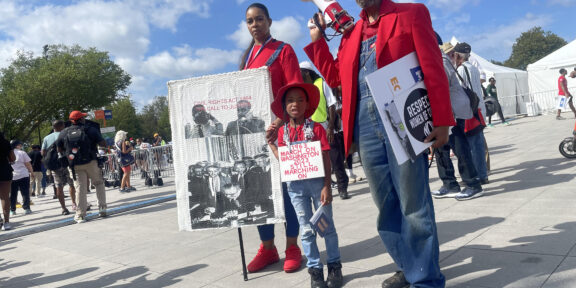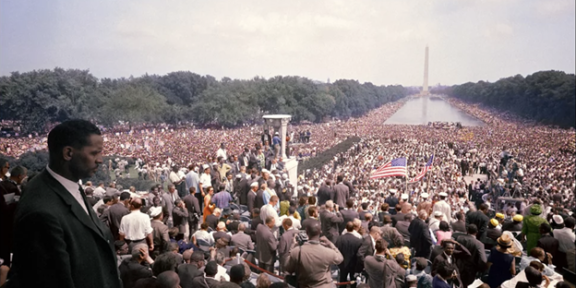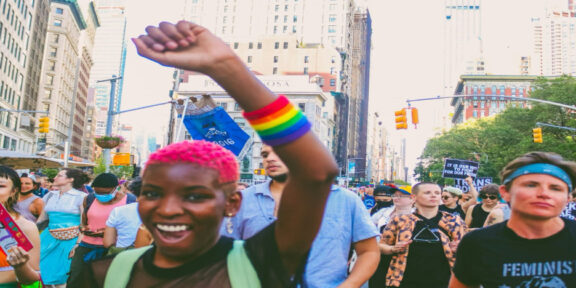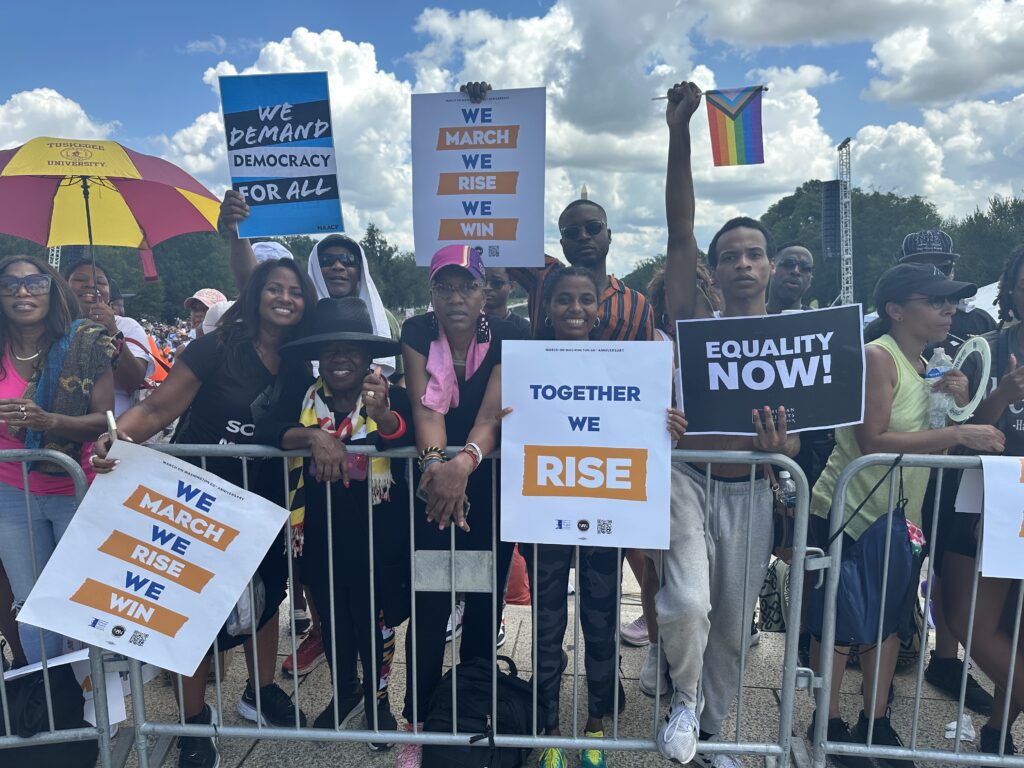
Generations Z and Alpha Want Their Voices to Be Heard
By Ebenezer Nkunda
Young people have always been on the front lines, with organizations like the Student Non-Violent Coordinating Committee, or SNCC, being key strategists and a strong force in the Civil Rights Movement.
“John Lewis is my hero,” John Brown says of the late congressman and SNCC activist. “I’m blessed to live in a state where voting rights are protected, but I have to march for those who don’t.”
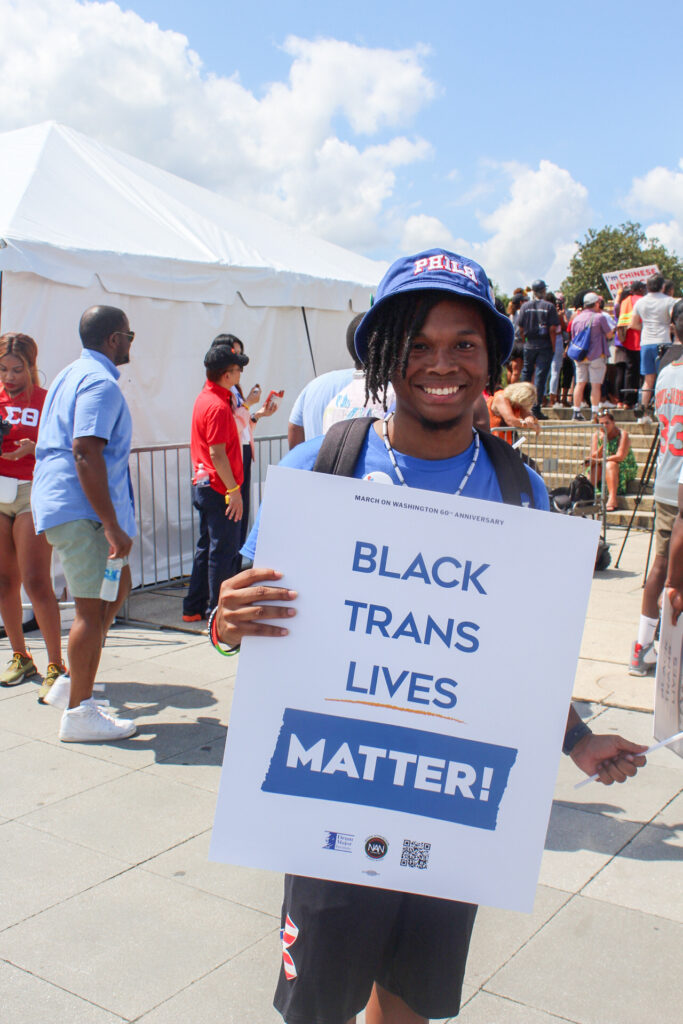
For Brown and many other young people, participating in demonstrations over intersectional issues is important. Generation Z is filled with individuals who simultaneously saw the first Black president elected while experiencing an economic recession. As they make their way into adulthood, Gen Zers face the reality that “global boiling” is here. Climate change, inequality, social unrest, political division and economic distress are all reasons that Gen Z and even members of Gen Alpha, who were born in 2010 or later, are sick and tired and ready to have their voices heard.
People between the ages of 18 and 34 are the most dissatisfied and least trusting of their own democracy, according to a report by the University of Cambridge in the United Kingdom. The ongoing study has been gathering information on satisfaction with democracies from about 5 million respondents in more than 160 countries since 1973.
“This is the first generation in living memory to have a global majority who are dissatisfied with the way democracy works while in their 20s and 30s,” Roberto Foa, lead author of the report, said in a statement.
With the recent overturning of Roe V. Wade by the U.S. Supreme Court, many young Americans are experiencing the waves of emotions that previous generations felt over having regulations on their bodies and fighting for that freedom to be given back. With voices loud and bodies ready, young people were in all areas of the march.
“We are going to be running this one day,” said Brown, who marched in support of transexual youth. “It’s important out here to say we’re different. We’re not going to take what’s demanded of us. It’s important to show we are fighting back.”
“We’re out here with a purpose,” he added. “Young people should look at our ancestors because they have the blueprint, and we got this far. I read what they’ve written. I watch speeches, look at what they’ve done in their life and stay in the fight because I look at my ancestors.”
Aaliyah Ervin shared similar thoughts.
“I am a part of the ballroom community, which is a Black LGBT safe space, and it’s very obvious that Black LGBT living is being threatened,” Ervin said. “As long as that is being threatened, I will be tented here. With every march, I will be here to fight for my people.”
Alyssa Mark and Ebenezer Nkunda are reporters for HUNewsService.com.

